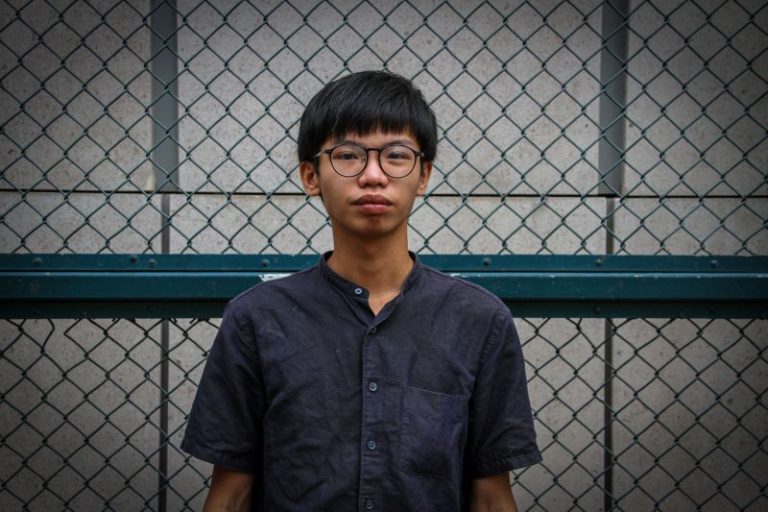The former leader of a Hong Kong pro-independence group said Thursday he had fled to Britain to seek asylum in breach of a police supervision order, joining a growing list of pro-democracy activists living in self-imposed exile overseas following Beijing’s crackdown on the city.
In a Facebook post, Tony Chung, 22, said he had faced “stringent surveillance” by national security police following his release from prison in June after serving a sentence for secession under a tough security law. He also claimed officers had exploited his poor financial situation in an attempt to induce him to become a paid informant.
“I feared stepping out of my home, feared using the phone in public, and worried about the possibility of being detained again by national security police officers on the streets,” he said. “Every meeting with the national security police officers filled me with dread, fearing that they may accuse me of endangering national security and would demand me to prove my innocence.”
Chung said he traveled to Britain via Japan after obtaining permission from police to go on a Christmas trip to Okinawa.
He joins an exodus of activists that have fled since Beijing imposed a sweeping national security law on Hong Kong more than three years ago, following nearly a year of pro-democracy protests that rocked the city.
Critics of Hong Kong’s national security law – which criminalizes secession, subversion, terrorism, and collusion with foreign powers and carries a maximum punishment of life imprisonment – say it has been used to crush the city’s opposition movement, overhaul its electoral system, silence its outspoken media and cripple its once-vibrant civil society.
But the Hong Kong government and Chinese authorities have repeatedly rejected such criticisms and said the law helped the city “restore stability” following the 2019 protests.
Earlier this month, Agnes Chow, one of the most prominent faces of the pro-democracy movement, revealed she had fled to Canada and would not return to Hong Kong to meet bail conditions as police investigate allegations she endangered national security.
Hong Kong police have recently placed HK$1 million ($128,000) bounties on a number of democracy activists living in self-imposed exile in a move condemned by the United States and United Kingdom.
All of those wanted now live in the US, Canada, Britain and Australia, which have suspended their extradition treaties with Hong Kong due to concerns over the security law.
Teenage activist
Chung was just a teenager when he became involved in politics.
In 2016, he co-founded Studentlocalism, a pro-independence group, which disbanded shortly before Beijing imposed the national security law in 2020.
At the time, those advocating for independence from China were a minority very much on the fringe of Hong Kong’s once broad democracy movement. But during the huge and sometimes violent democracy protests that raged for months in 2019, calls for greater autonomy, and even independence, became more commonplace, alarming Beijing.
Beijing imposed its new national security law on Hong Kong the following year.
A few months after the law was enacted, Chung was detained by Hong Kong police on secession charges under the security law amid reports he planned to claim for asylum at the US consulate.
In 2021, he was sentenced to a total of 43 months in prison for trying to separate the city from China, and for money laundering.
He was released in June and was put under a one-year supervision order by police.
But Chung claimed that national security police have arbitrarily tightened their surveillance, requesting meetings with him every two to four weeks, questioning him on every detail of his activities, including information about the people he was in contact with and the content of their conversations.
He said authorities also imposed restrictions making it difficult for him to find temporary jobs. Chung speculated that authorities learned of his financial struggles and proposed to pay him informant fees.
“In the past six months with no income from any work, the national security police officers kept on coercing and inducing me to join them,” Chung said on Facebook.
Chung said national security police officers in September also suggested taking him on a trip to mainland China. He said he feared being extradited to the mainland and turned down the proposal.
Before she fled to Canada, fellow activist Chow also claimed that as condition to get her passport back from police, she had to travel in August with authorities to the mainland Chinese city of Shenzhen, just across the border from Hong Kong.
A Hong Kong police statement earlier this month confirmed they had returned Chow’s passport to allow her to study overseas and prolonged her bail. It did not address her account of the trip to Shenzhen.

